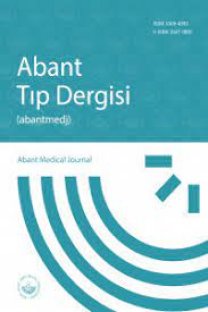Hasta ile ilk karşılaşma: Yaptıklarım yeterli mi?
First encounter with the patient: Is what I've done enough?
AIDS, HIV, Management,
___
- Referans 1: World Health Organization HIV Key Facts (İnternet) Son Erişim Tarihi: 14 Ekim 2022, Son Güncelleme: 22 Temmuz 2022 (https://www.who.int/news-room/fact-sheets/detail/hiv-aids)
- Referans 2: HIV/AIDS Tanı İzlem ve Tedavi El Kitabı. 2nd rev. ed. Gokengin D, Kurtaran B, Korten V, Tabak F, Ünal S. Türkiye: Türk HIV/AIDS Platformu; 2021.
- Referans 3: EACS Guidelines version 11.0, October 2021. (PDF Versiyonu) [https://www.eacsociety.org/media/final2021eacsguidelinesv11.0_oct2021.pdf] Son Erişim Tarihi: 21.10.2022
- Referans 4: Francesco R. Simonetti, Robin Dewar, and Frank Maldarelli: Diagnosis of Human Immunodeficiency Virus Infection, In: John E. Bennett, Raphael Dolin, Martin J. Blaser (Eds): Mandell, Douglas, and Bennett’s Principles and Practice of Infectious Diseases. 9th edition, Elsevier, Philadelphia, USA 2019:138-39.
- Yayın Aralığı: 6
- Başlangıç: 2012
- Yayıncı: Bolu Abant İzzet Baysal Üniversitesi Tıp Fakültesi Dekanlığı
Hasta ile ilk karşılaşma: Yaptıklarım yeterli mi?
Orçun BARKAY, Faruk KARAKEÇİLİ
Çocuklarda akut semptomatik nöbetin oldukça nadir bir nedeni: Kayısı çekirdeği yutulması
Radyolojik Olarak Covid-19 Pnömonisi Düşünülen Hastalarda Antikor Düzeylerinin Değerlendirilmesi
Gözde ÖKSÜZLER KIZILBAY, Serap ARGUN BARIŞ, Emel AZAK KARALİ, Aynur KARADENİZLİ, Hüseyin UZUNER, Sevtap DOĞAN, Haşim BOYACI, İlknur BAŞYİĞİT
Fotokromik Senofilcon A Kontakt Lensin Total Göz Aberasyonlarına Etkisi
Deniz KILIC, Muhammed Raşit SİREM, Yunus Naci AZİZ, Semra KOCA, İbrahim TOPRAK
Acil Servise Kafa Travmasi ile Başvuran Pediatrik Hastalarin Demografik Analizi
Blaschko Çizgilerine Yerleşen Lineer Liken Planus: Olgu Sunumu
Tuna SEZER, Feyza Nur ŞİMSEK, Eda Hilal İMAMOĞLU
Sağlık Hizmetlerinin Planlanmasında Multidisipliner Yaklaşım
Hemoliz Nedeni Olarak Diyalizörler
Geniş Bir Türk Kohortundaki Gastrik Adenokarsinomlarda Claudin 18.2 Ekspresyonu
Aynur IŞIK, Güneş GÜNER, Can ZEYNELOĞLU, Seçil DEMİRKOL CANLI, Hakki TASTAN, Aytekin AKYOL
